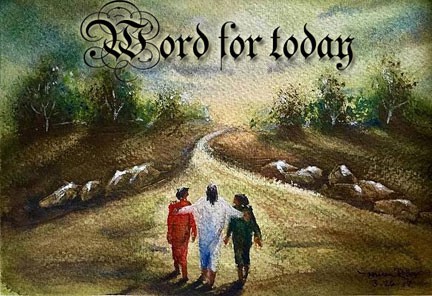Watch
Events
Articles
Market
More
I just put all of my short Romans videos into a playlist on Torah Tube!
https://tube.ttn.place/watch/i....ntroduction-to-roman



New episode, Believing doesn’t make it true. Listen where you get your favorite podcasts, use the player on our homepage or here https://www.spreaker.com/show/....give-god-90-episode-




“Woe unto them that call evil good, and good evil; that put darkness for light, and light for darkness; that put bitter for sweet, and sweet for bitter!”
Isaiah 5:20 KJV
The Law is good:
“Thou camest down also upon mount Sinai, and spakest with them from heaven, and gavest them right judgments, and true laws, good statutes and commandments:”
Nehemiah 9:13 KJV
“For I give you good doctrine, forsake ye not my law.”
Proverbs 4:2 KJV
“Wherefore the law is holy, and the commandment holy, and just, and good.”
Romans 7:12 KJV
“But we know that the law is good, if a man use it lawfully;”
1 Timothy 1:8 KJV
The Law is light:
“For the commandment is a lamp; and the law is light; and reproofs of instruction are the way of life:”
Proverbs 6:23 KJV
“To the law and to the testimony: if they speak not according to this word, it is because there is no light in them.”
Isaiah 8:20 KJV
The Law is sweet:
“O how love I thy law! it is my meditation all the day. Thou through thy commandments hast made me wiser than mine enemies: for they are ever with me. I have more understanding than all my teachers: for thy testimonies are my meditation. I understand more than the ancients, because I keep thy precepts. I have refrained my feet from every evil way, that I might keep thy word. I have not departed from thy judgments: for thou hast taught me. How sweet are thy words unto my taste! yea, sweeter than honey to my mouth!”
Psalms 119:97-103 KJV
https://thestraightandnarrow.cfw.me/comics/950
#bible #bibleverse #bibleverseimages #biblestudy #biblestudynotes #church #christian #webcomic #webcomicseries #cartoon



060225
Day 44 of counting the omer. Significance of Number 44. The number 44 carries spiritual significance in the Bible, representing various divine attributes and qualities. It is often associated with faith, transformation, and spiritual growth. The number 44 is believed to symbolize the unity between heaven and earth, as well as the balance between the physical and spiritual realms.
WORD FOR TODAY “are you a spiritual adulterer?”: Num 5:29 This is the law for jealousy: when either a wife under her husband's authority goes astray and becomes unclean,
WISDOM FOR TODAY: Psa 37:7 Be still before YEHOVAH; wait patiently till he comes. Don't be upset by those whose way succeeds because of their wicked plans.
www.BGMCTV.org




The key word is Kindle in the original text. To Kindle a fire required work and it was the only way they had to start a fire at that time. Today we have easier ways to start a fire that doesn't require work.
Shemoth (Exodus) 35:3 TS2009
[3] “Do not kindle a fire in any of your dwellings on the Sabbath day.”
https://bible.com/bible/316/exo.35.3.TS2009



https://torahtent.com/Omer2025.php
Today is the 44th day of the omer. just one more week until Shavuot.



Thought for Today: Monday June 02
Many, many believers talk that we are living in the end times and that Yeshua will return soon. If we look at the signs, the world is getting worse and worse by the day and this must remind us that our Moshiach will return again to bring an end to this present world. Yeshua did teach that that certain events or signs will point to His return, and many of those signs are seen today. It may well be that His return is very soon BUT we should live as if each day is our last on earth and we need to glorify Him as much as we can. His coming for you or me, may be today, or tonight, or tomorrow, we will never know -- it may be caused by an accident, a heart attack, sickness, crime or whatever. Be prepared, live for the Most-High Creator – your eternal life depends on it!


